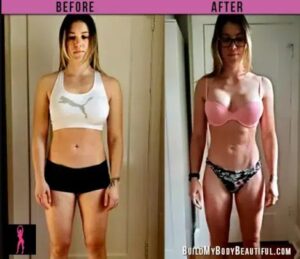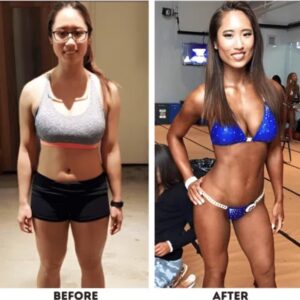Weight gain during period is something we as women have to deal with on a constant basis. Research shows that eating habits should be adjusted to the way women progress through the menstrual phases, which help with reducing water retention, food cravings and even mitigate cramps.
As females, our hormones control a lot about us. From our energy, mood, and appetite, those hormones play a big role in our daily functioning in ways that sap your energy or stoke your cravings for junk food. The concept that hormones changes throughout our menstrual cycle playing a role in weight loss makes logical sense.
The fundamental cause of failing to lose weight is not our lack of will-power but our lack of understanding about our cyclic nature. We fail to listen to the cyclic needs of our body and the cyclic needs of our motivation and desires. As hormone levels naturally change, women’s bodies experience increased drive to eat during certain phases that are then offset by a decreased drive to eat during other phases.
So how can we live and eat in tune with our cycles and have healthy and happy lives?
How to Mitigate Weight Gain During Period?
Research shows that varying your protein, carb and fat intake throughout your cycle can combat the functions in cravings and energy. Increased protein content during some phases where hunger often is increased help keep you satisfied. During other phases where women have increased cravings for fat and carbohydrate containing foods, by allowing yourself some dark chocolate can help prevent you from bingeing on sweets. The take-home message is that where you are in your menstrual cycle matters.
What to do during the 3 phases of your cycle
Early Follicular Phase/Beginning of Menstruation – Days 1 to 4: Energy is lowest here during, with cramping being highest. This is the natural rest and restoration phase of the cycle, and if we don’t rest we can experience less energy in the following phases. Lighter exercises like yoga, walking, accessory weight training or stretching is best here and may relief symptoms. Your appetite should also be mellower, so try to adjust your eating habits to match your energy needs. Some find they might feel satisfied with smaller meal portions.
Late Follicular Phase – Days 5 to 15: Your energy should gradually be increasing, so it’s time to ramp up your workout intensity and frequency. As your hunger ramps up, try to satisfy it by adding extra protein to your meals to avoid weight gain during period. Notice the foods that your body wants to eat and really enjoy all the flavours, focusing on mindfulness with eating.
Luteal Phase – Days 16-28: You tend to have the most energy. With this energy come greater hunger levels and more cravings for energy dense foods. Try to further up your exercise frequency and intensity. You may find those intense bootcamp classes easier to handle during this time. You’ll probably eat a little more than you did earlier in your cycle. Just make sure those extra calories come from healthy fats (avocado, olive oil, nuts) and protein, not carbs. During the last four days of your cycle, eating some dark chocolate (at least 80% cocoa) can help satisfy your cravings. Your body may also retain water during the end of this phase, so increasing your water intake is recommended.
Supplementation
Weight gain during period aside, cramps can also be taken care of with eating proper foods. Certain nutrients can also be helpful to be taken on a daily basis and the most important ones for period pains are the Omega 3 fatty acids. These provide the raw materials for the creation of anti-inflammatory units in our body. Magnesium supplementation has also been shown to be helpful with cramping during our pre-menstrual and menstrual week.
Looked at another way, a “listen to your body” approach to eating and exercise. If your hunger spikes, try to satisfy it with healthier foods. And when you have extra energy, work in more exercise. Women who have predictable menstrual cycles may find it easier to predict these appetite and energy swings. But we’d all do well to pay more attention to the signals our bodies and hormones are sending us.
Subscribe to Body Beautiful Online and gain access to all the tools you need to stay healthy, slim and fit year round.





